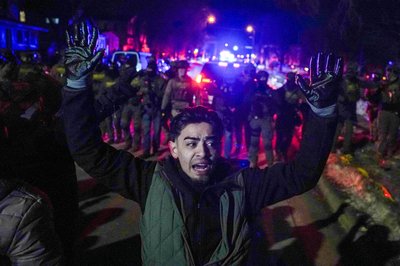Summary
The U.S. Supreme Court grappled (struggled) once again with the issue of separation of church and state. As John Yang reports, Wednesday’s arguments about whether taxpayer funds can be used to pay tuition at religious schools in Maine comes on the heels of recent cases in which the justices sided with anti-separation church and state advocates.
secular -
not
connected with or pertaining to religion
Five Facts
-
Who
has sued the state of Maine in the case the Supreme Court argued on Wednesday?
-
What
is the reason for the lawsuit?
-
What
private schools does Maine fund through tuition reimbursement, and why?
-
Why
has an attorney representing a large Lutheran denomination defended Maine's position in not funding religious schools?
-
How
was a similar case over the summer decided by the Supreme Court?
Focus Questions
What might be the consequences or impact of governments funding religious educational institutions?
Media literacy:
Who would you want to hear from to better understand the impact this lawsuit might have on barriers between church and state?
For More
In June 2021, the
Supreme Court ruled
that a tax credit offered in the state of Montana for parents of private school students would have to apply to religious schools as well. Writing for the court, Chief Justice John Roberts said, “a state need not subsidize [help pay for] private education. But once a state decides to do so, it cannot disqualify some private schools solely because they are religious.”
Based on Roberts words and ruling in June 2021, what do you think his opinion will be in the case mentioned above?





